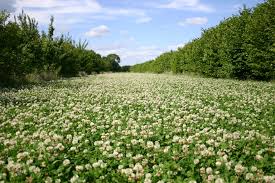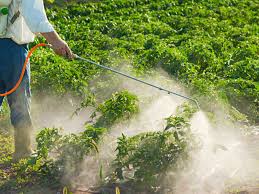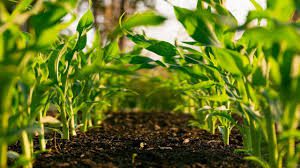Organic farming is an agricultural method that prioritizes sustainability and ecological balance, avoiding synthetic chemicals and genetically modified organisms.
This approach offers numerous benefits that extend beyond just food production. Here’s an overview of the key advantages of organic farming:
Environmental Benefits
Organic farming practices contribute positively to the environment in several ways:
1. Soil Health: Organic farming enhances soil structure and fertility through the use of natural fertilizers, such as compost and manure. Healthy soils support diverse microorganisms, leading to better nutrient cycling and crop growth.
2. Biodiversity: By avoiding synthetic pesticides and fertilizers, organic farming fosters a more diverse ecosystem. This biodiversity helps control pests naturally and supports wildlife habitats, contributing to a balanced ecosystem.
3. Water Conservation: Organic practices, like cover cropping and mulching, improve water retention in the soil and reduce erosion. This leads to better water management and conservation.
4. Reduced Pollution: Organic farming minimizes the risk of chemical runoff into waterways. This protects aquatic ecosystems and maintains water quality for both humans and wildlife.
5. Climate Change Mitigation: Organic farming can contribute to carbon sequestration through practices like agroforestry and improved soil health, helping to mitigate climate change impacts.
Health Benefits

1. Nutritional Value: Some studies suggest that organic produce may contain higher levels of certain nutrients, including antioxidants, which are beneficial for overall health.
2. Reduced Chemical Exposure: Organic farming avoids synthetic pesticides and fertilizers, reducing the risk of chemical residues in food. This leads to safer food consumption and lower health risks associated with pesticide exposure.
3. Animal Welfare: Organic livestock farming practices emphasize humane treatment, providing animals with more space, access to the outdoors, and organic feed. This leads to healthier and more ethically raised animals.
4. Lower Antibiotic Use: In organic farming, the use of antibiotics in livestock is restricted, which can help reduce antibiotic resistance and promote healthier livestock populations.
Economic Advantages
Organic farming can provide several economic benefits to farmers and communities:
1. Premium Prices: Organic products often sell at higher prices in the market, providing better income opportunities for farmers. Consumers are willing to pay more for organic produce due to its perceived health and environmental benefits.
2. Market Growth: The demand for organic products continues to rise globally. This growth creates new market opportunities for farmers, leading to increased sales and economic stability.
3. Reduced Input Costs: Organic farming often relies on natural inputs and practices, which can lower costs associated with synthetic fertilizers and pesticides. This can lead to more sustainable farming practices and reduced dependence on external inputs.
4. Job Creation: The expansion of organic farming can create jobs in various sectors, including production, processing, and retail. This supports local economies and communities.
Social and Community Benefits
Organic farming fosters social and community well-being in several ways:
1. Community Engagement: Organic farming often encourages collaboration and cooperation among local farmers and consumers. Farmers’ markets and community-supported agriculture (CSA) programs promote direct relationships between consumers and producers.
2. Food Security: Organic farming practices can enhance food security by diversifying crop production and promoting local food systems. This reduces reliance on industrial food systems and supports community resilience.
3. Education and Awareness: Organic farming initiatives often involve community education programs about sustainable practices, nutrition, and healthy eating, promoting a more informed and engaged public.
4. Cultural Preservation: Organic farming can help preserve traditional agricultural practices and local biodiversity, contributing to cultural heritage and community identity.
Read Also: Recommended Volume of Water for Fish Farming on a Concrete Pond
Biodiversity Enhancement

1. Promoting Ecosystem Diversity: Organic farming encourages a variety of crops and livestock, which enhances biodiversity on farms. This diversity helps create a balanced ecosystem, attracting beneficial insects and wildlife, which can naturally control pests.
2. Habitat Conservation: Organic farms often maintain hedgerows, cover crops, and wildlife habitats. These features provide shelter and food for a variety of species, promoting a healthier ecosystem.
3. Crop Rotation and Polyculture: By rotating crops and practicing polyculture, organic farmers reduce the risk of pest outbreaks and diseases, thus promoting a more resilient agricultural system.
Soil Health Improvement
1. Enhanced Soil Structure: Organic farming practices, such as using compost and cover crops, improve soil structure. Healthy soils retain moisture better, reducing the need for irrigation.
2. Increased Nutrient Availability: Organic methods promote microbial activity in the soil, which helps in nutrient cycling. This leads to better availability of essential nutrients for plants.
3. Reduced Soil Erosion: The practices used in organic farming, such as no-till farming and cover cropping, help prevent soil erosion, maintaining soil integrity and fertility.
Read Also: Concrete Pond Management: Steps to take before introducing the Fish in the Water
Reduction of Chemical Usage

1. Lower Pesticide Application: Organic farming relies on natural pest control methods rather than synthetic pesticides. This reduces the chemical load on the environment and decreases the risk of pesticide resistance in pests.
2. Natural Fertilizers: Instead of synthetic fertilizers, organic farmers use natural amendments like compost and green manure, which enrich the soil without the negative impacts associated with chemical fertilizers.
3. Healthier Food Choices: Reduced chemical usage leads to safer food products with lower levels of harmful residues, promoting better health for consumers.
Sustainability and Resilience
1. Resource Conservation: Organic farming practices often focus on conserving resources like water and energy. For example, using crop rotations can reduce the need for external inputs and enhance resource use efficiency.
2. Climate Resilience: Organic systems are often more resilient to climate change impacts. Practices such as maintaining soil health and biodiversity can help farms adapt to changing weather patterns.
3. Long-term Viability: By promoting sustainable practices, organic farming can ensure the long-term viability of agricultural land and resources for future generations.
Challenges and Considerations
1. Certification Costs: Obtaining organic certification can be expensive and time-consuming for farmers, which may deter some from transitioning to organic methods.
2. Knowledge and Training: Farmers may require additional training to implement organic practices effectively. Lack of access to education can be a barrier to successful organic farming.
3. Market Access: Organic products may face challenges in reaching consumers due to limited market access, distribution networks, and competition with conventional products.
4. Yields and Economic Viability: In some cases, organic farming may yield less than conventional farming in the short term, which can impact the economic viability for farmers.
Organic farming provides a wide range of benefits that encompass environmental health, human health, economic prosperity, and community engagement.
By prioritizing sustainable practices and fostering a closer relationship between consumers and producers, organic farming plays a crucial role in creating a more sustainable and equitable food system.
As the demand for organic products continues to grow, the positive impacts of organic farming will be increasingly important for our planet and future generations.
Do you have any questions, suggestions, or contributions? If so, please feel free to use the comment box below to share your thoughts. We also encourage you to kindly share this information with others who might benefit from it. Since we can’t reach everyone at once, we truly appreciate your help in spreading the word. Thank you so much for your support and for sharing!
Read Also: Adaptive Means of Animals Coping with the Environment

